#Jep Gambardella
Video
Baz Luhrmann, The Great Gatsby, 2013
VS
Paolo Sorrentino, La grande bellezza, 2013
#Baz Luhrmann#the great gatsby#leonardo di caprio#paolo sorrentino#Francis Scott Fitzgerald#jay gatsby#new york#long island#movie#film#cinema#la grande bellezza#Toni Servillo#jep gambardella
47 notes
·
View notes
Text
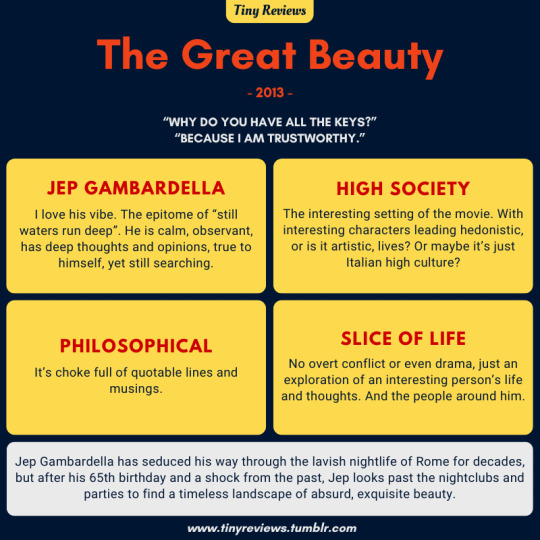
Expected it to be dull, or pretentious. Pleasantly, it is neither. But the ending is quite lackluster. Reminds me a lot of another Italian production, Tear Along The Dotted Line, where the protagonist goes on philosophical rants.
The Great Beauty (Italian: La grande bellezza [la ˈɡrande belˈlettsa]) is a 2013 art drama film co-written and directed by Paolo Sorrentino, starring Toni Servillo, Carlo Verdone. and Sabrina Ferilli.
#the great beauty#the great beauty review#jep gambardella#toni servillo#carlo verdone#sabrina ferilli#art drama#high society#slice of life#philosophy#italy#italian#movie review#2013#tear along the dotted line
2 notes
·
View notes
Text
Ontem, aquele casamento parecia uma cena infinita das festas do Gambardella em A grande beleza. Notem bem o quanto não costumo sair de casa pra socializar, beber e dançar.
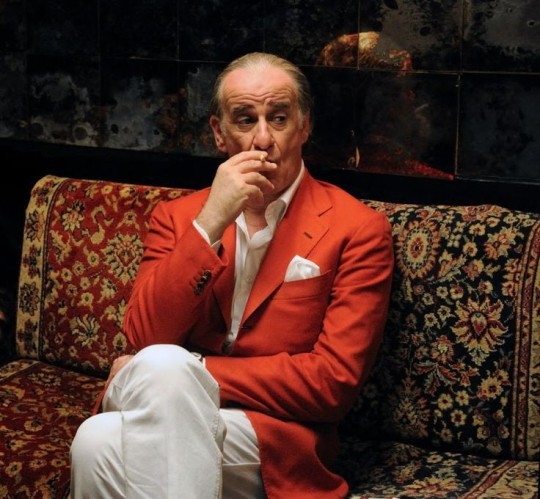
1 note
·
View note
Text
Jep Gambardella, Toni Servillo “La Grande Bellezza”
Pen on paper 13x21cm

View On WordPress
#art#ballpen#daniele barillari#danielebarillari#disegno#drawing#Gambardella#illustration#ink sketch#Jep#La Grande Bellezza#penna#portrait#ritratto#sketch
7 notes
·
View notes
Text
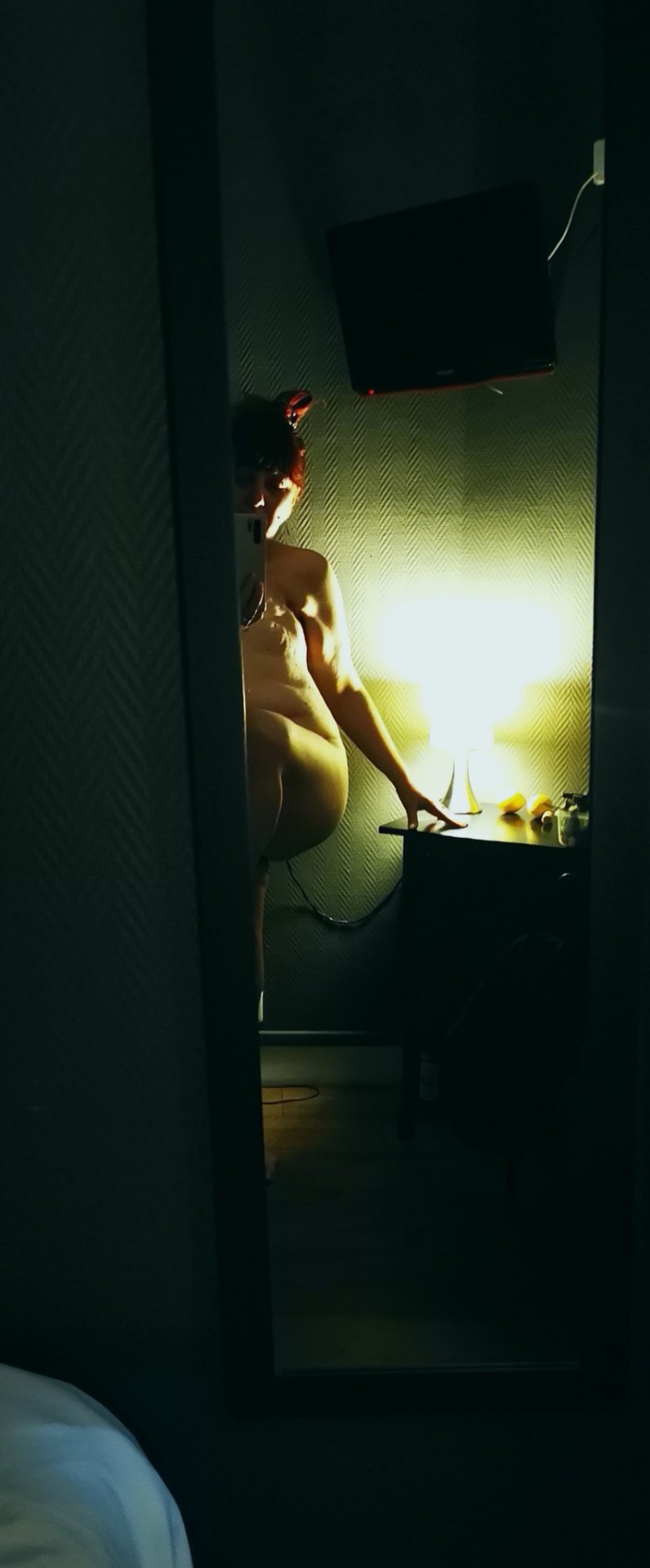
Jep Gambardella : The most important thing I discovered a few days after turning 65(56😎🧙) is that I can't waste any more time doing things I don't want to do.
#breastcancersurvivor#photographers on tumblr#tamurakafkaposts#selfportret#colors#when in paris in may#hotels rooms
104 notes
·
View notes
Text
tog fandom's favourite luca marinelli movie: ROUND TWO
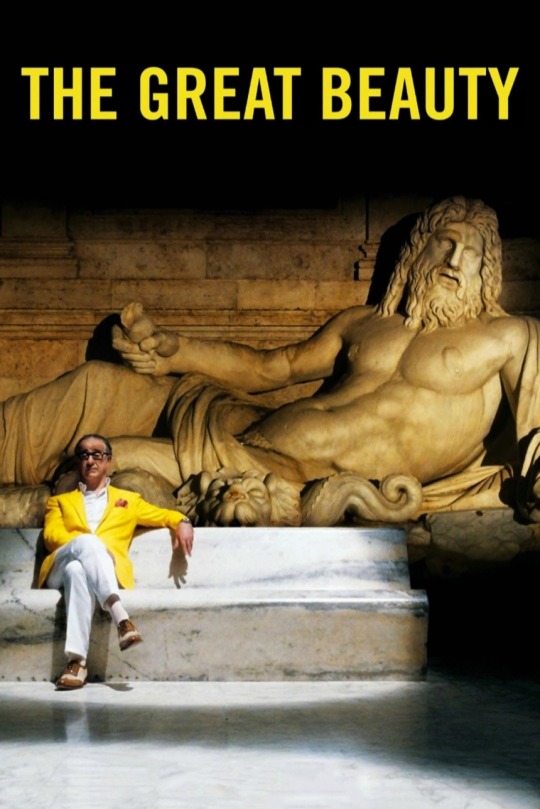

Summaries:
La grande bellezza / The Great Beauty (2013):
“Jep Gambardella has seduced his way through the lavish nightlife of Rome for decades, but after his 65th birthday and a shock from the past, Jep looks past the nightclubs and parties to find a timeless landscape of absurd, exquisite beauty.”
Diabolik (2021):
“1960s, the city of Clerville. The forthcoming visit of heiress Eva Kant, who’ll be bringing a famous pink diamond with her, catches the attention of Diabolik, the infallible and elusive thief whose real identity is unknown: while trying to steal the jewel, he finds himself bewitched by Eva’s charm, a feeling she may be reciprocating. But the police, led by relentless Inspector Ginko, is rapidly closing in on him…”
RULES:
ideally vote based on which film is your favourite, but if you haven't seen both / either vote which one you'd like to watch most or prefer the vibes of
or any other reasonable metric of your choice
propaganda IS encouraged and can be sent to me or added to the post
go forth and have fun!
6 notes
·
View notes
Text
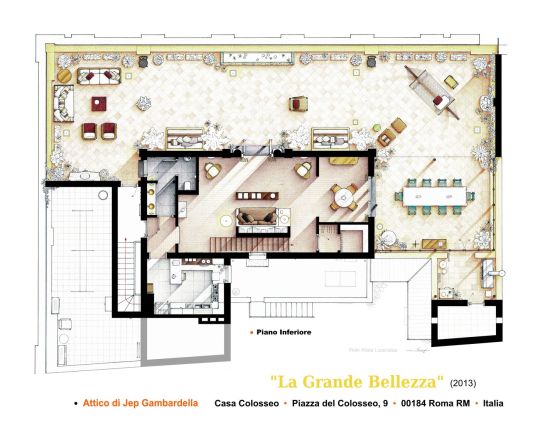


Planimetrie dell'attico di Jep Gambardella dal film "La Grande Bellezza" di Paolo Sorrentino (2013).
Floorplans of Jep Gambardella's penthouse from the movie "The Great Beauty" by Paolo Sorrentino (2013).
.
Find "BEHIND THE SCREENS" in your bookstore with the ISBN code: 179721943X
.
If you are interested in a handmade original or other prints visit my store on ETSY or iCanvas:
https://www.etsy.com/shop/TVFLOORPLANSandMORE
https://www.icanvas.com/canvas-art-prints/artist/tv-floorplans-more
Or write me to [email protected]
#Floorplan #Floorplans #Houseplan #Houseplans #colouringpencils #colourpencils #colouring #Floorplan #Floorplans #Houseplan #Houseplans #Layout #Blueprint #architecturelover #architecturelovers #drawingarchitecture #architecturaldrawing #handmadedrawing #FloorplanArt #FloorplanPorn #gardenlove #gardenlovers #lagrandebellezza #thegreatbeauty #terracegarden #terrace #Roma #Rome
#Floorplan#Floorplans#Houseplan#Houseplans#colouringpencils#colourpencils#colouring#Layout#Blueprint#architecturelover#architecturelovers#drawingarchitecture#architecturaldrawing#handmadedrawing#FloorplanArt#FloorplanPorn#gardenlove#gardenlovers#roma#rome#lagrandebellezza#thegreatbeauty#terracegarden#terrace#Roma#Rome
3 notes
·
View notes
Text
@fakrichie tagged me to post four characters who are "my man." so, in no particular order:
Endeavour Morse (Inspector Morse: 1987-2000)

We have the exact opposite taste in opera, but I do love the Jag Mark II. And his love for Lewis and Max and Strange, no matter how much he might like to act like he doesn’t care. He’s an arrogant, insecure, brilliant, oblivious mess who can’t stop getting in his own way and making himself lonely, but you can’t help rooting for him all the same.
Jep Gambardella (The Great Beauty: 2013)

A feted writer who hasn’t written a book in decades, Jep is surrounded by beauty and ugliness and vacillates wildly between focusing on one or the other, facing 65 and the closing salvo of his life. The ennui cursed intellectual is an old European cinematic trope, but he’s fleshed out enough to make a fascinating, if not always especially sympathetic, character and his endless search for something is relatable in the most disquieting way.
Howard Justin (The Passionate Friends: 1949)
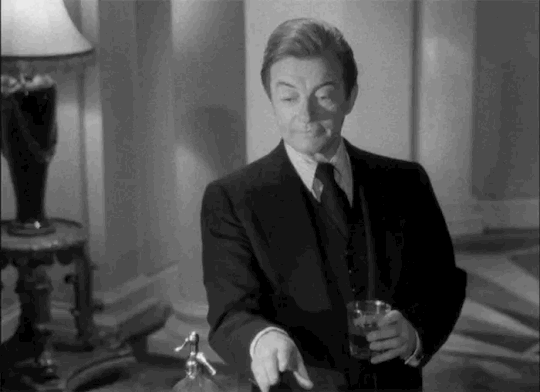
I have a soft spot for all of Claude Rains’ characters, but Howard has always struck me as one of the most interesting, particularly for the age of the film. He’s a man married to a woman who he knows full well doesn’t love him, and whom he doesn’t love, because he prizes companionship and mutual freedom above romantic love. And then discovers, in the course of having his heart broken, that those things aren’t mutually exclusive.
Joseph Kern (Trois couleurs, Rouge: 1994)
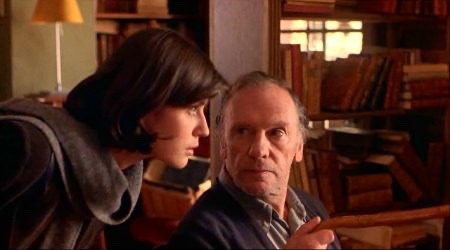
In any other context, ex-judge who eavesdrops on his neighbors phonecalls would probably be the beginning of either a bad sex comedy or a horror-thriller in French cinema. But Joseph develops into something entirely different, and I never get tired of watching him rediscover having a reason to live through his parallel relationship Valentine and Rita/her puppies. It’s a very bittersweet, but ultimately uplifting take on a found family late in life.
Hate that I’ve gotten to the end of this and really shown that I have a thing for sad, unloved-feeling intellectual old men, but we’re just going to ignore that.
Tagging: @agentidiot , @charliesmydarling , @smittyjaws , and whoever else would like to participate.
#god. no wonder my mom thinks I’m looking for dates at the nearing nursing home#ask game#fakrichie#charlesandkeef
2 notes
·
View notes
Note
Lo abbiamo sempre saputo che molte votazioni delle giurie erano fatte per favorire determinate canzoni (la svezia costantemente in top5 con la giura è un po' sus) ma grazie all'eurovision in italia che adesso ne abbiamo conferma.
Perché solo noi potevamo far creare questo drama 💅🏻
L'Italia nella sua Jep Gambardella era

109 notes
·
View notes
Text
Finisce sempre così, con la morte. Prima però c’è stata la vita, nascosta sotto i bla bla bla bla. È tutto sedimentato sotto il chiacchiericcio e il rumore, il silenzio e il sentimento, l’emozione e la paura, gli sparuti incostanti sprazzi di bellezza e poi lo squallore disgraziato e l’uomo miserabile. Tutto sepolto nella coperta dell’imbarazzo dello stare al mondo, bla bla bla bla. Altrove c’è l’altrove, io non mi occupo dell’altrove, dunque che questo romanzo abbia inizio. In fondo è solo un trucco. Sì, è solo un trucco.
Voce fuori campo del giornalista Jep Gambardella (Tony Servillo) alla fine del film La Grande Bellezza
4 notes
·
View notes
Note
Come stai?
Ho smesso di chiedermelo, la mia esistenza mi sembra un mix di personaggi di film che si contraddicono tra di loro. Ultimamente me la vivo come Bridget Jones con meno manzi e il cinismo di Jep Gambardella.
2 notes
·
View notes
Text
A grande beleza
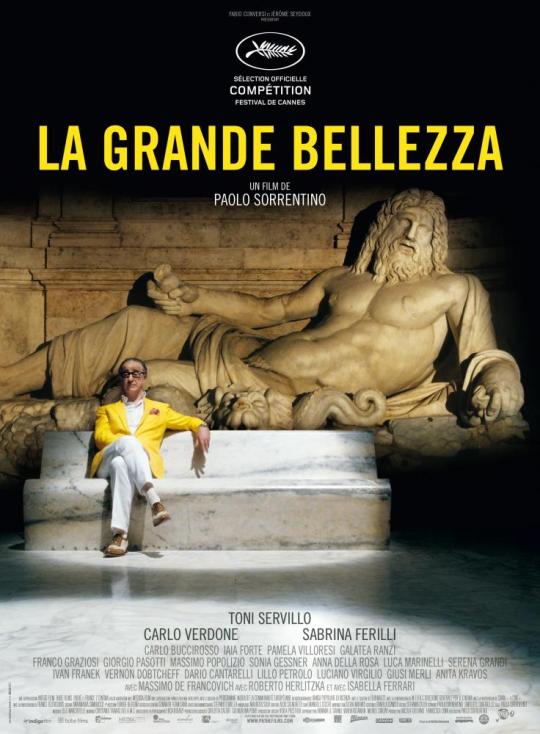
Meu amante italiano partiu. Foi velejar pela Europa pelos próximos meses. Troca justa, eu achei. Passamos um mês juntos, intensos e com alguns dos melhores diálogos que duas pessoas podem manter. Em uma de nossas últimas conversas, falamos sobre as diferenças entre Brasil e Itália. Que eu tinha aprendido, por exemplo, que o café da manhã na Itália é sempre doce. E ele me confessou que há vários tipos de italianos, mas o italiano “cafona” é o mais divertido, porque é o romano. “Como no filme La grande bellezza, lembra daquelas festas?”, eu lembrei. Deu vontade de reassistir ao filme assim que ele foi embora, e dez anos após o seu lançamento.
Quando A grande beleza começa, o sentimento de estranheza vem como um arrepio, e nos primeiros minutos a obra faz jus ao título que carrega, no campo da superficialidade: toda a paisagem, música e instantes de silêncio causam brilho nos olhos, é inevitável. E uma diurna Roma, atravessada por um acontecimento inesperado, dá lugar a uma festa noturna, com toda a pompa e circunstância que merece: são os sessenta e cinco anos de Jep Gambardella, narrador e personagem, cínico e cativante, sedutor e cruel protagonista, muito bem interpretado por Toni Servillo.
Gambardella é escritor de uma obra só. E não apenas por isso manteve prestígio com o passar dos anos, mas também firmou seu trabalho como jornalista, entrevistador e crítico de teatro. Sempre foi cobrado sobre a razão de nunca ter escrito mais livros, e sempre respondeu da mesma forma: que tem preguiça, que Roma lhe distrai. Uma vez me disseram que São Paulo é uma cidade perigosa por seus tentáculos - que vão sempre lhe puxando, a um ponto em que você não consegue mais sair dela. O conselho tornou-se prática, em sentido negativo. Já a relação de Gambardella com Roma é afeto mútuo e excessos também: ele vive cada noite em uma festa, admite que vai para a cama quando todos começam a sair dela e o filme, que não tem a menor linearidade, é uma amostra de episódios incompletos que vão se atraindo e repelindo entre si, graças também aos contatos de Gambardella e uma sensação de ressaca que permeia toda a obra.
Ele tem um seleto grupo de amigos, todos mais ou menos ali na mesma faixa etária, gente que conheceu quando chegou em Roma, alguns de muitos anos depois. Esse grupo de amigos e os acontecimentos da vida profissional de Gambardella formam uma espécie de mosaico ou colcha de retalhos (que é sempre minha opção favorita, porque reconfortante) das reflexões desse homem que está cansado de levar a vida do jeito de sempre, mas tampouco sabe como se livrar de velhos hábitos - e não se preocupa genuinamente em fazer algo para mudar.
O ponto alto e interessante na trajetória de Gambardella, anti-herói de si mesmo, está nas perdas que sofre. Curiosamente, todas de pessoas mais novas que a sua idade e geração. Como Andrea, filho de uma amiga de seu grupo, rapaz que sofre de problemas psicológicos e de forma alguma enxerga Roma da mesma forma que Gambardella. Ou Ramona, filha de outro amigo seu: trabalha como stripper, sofre de uma doença incurável e torna-se amante de uma estranha relação com o protagonista. A exceção é Elisa, que quase não aparece na história, mas foi o primeiro amor da juventude de Gambardella; e seu marido, recém-viúvo, lhe aparece com a notícia: Gambardella esteve em cada página do diário de Elisa, ela sempre o amou, mesmo que tenham passado mais de trinta anos sem contato.
Da morte de Andrea gosto particularmente, porque Gambardella guia o telespectador através de um manual prático de como se portar em um enterro. É ele quem escolhe a roupa de sua acompanhante, o que gosto de definir como “a viúva Dolce & Gabbana”: veste preto, é um vestido colado, até mesmo decotado, sedutor, como quem deixa claro que está sofrendo, apesar de supostamente ter dado fim ao próprio marido. O vestido tem renda, transparência, a viúva carrega algum acessório com símbolo católico, ela é muito fervorosa. É cafona, A grande beleza parece estar cheio de “viúvas Dolce & Gabbana” por zombar dessa atmosfera cafona. Mas a diversão pela escolha do modelito logo termina quando Gambardella descumpre uma de suas regras e chora no enterro, inesperado até para si mesmo.
Outros amigos de Gambardella servem de contraste e identificação - é como ler Cem anos de solidão de novo, de novo e de novo: você vai se reconhecer em alguém. Por que não Romano? Romano tenta escrever peças de teatro, mas nada realiza, corre atrás de uma jovem atriz que lhe dispensa sempre, em qualquer oportunidade. Ou, quem sabe, Stefania: escritora de sucesso, muitos livros publicados, o contraponto de Gambardella, mas também um teto de vidro prestes a rachar, alvo do discurso mais feroz do protagonista, quando provocado. Jep Gambardella sabe quando é possível perder o amigo sem perder a piada, mas talvez esqueça - ou desconheça - uma máxima de Hubert Fichte: “Jack precisava de poucas pessoas, mas destas, muito!”. E é quando a sucessão de perdas acontece que ele aprende a dar valor a quem afastou de si.
A grande beleza é o oitavo filme de Paolo Sorrentino e, em 2014, ganhou o Oscar de melhor filme estrangeiro. Tem uma capacidade ímpar de abranger o tudo e o nada, sem cair em monotonia. É o excesso e o vazio, o excesso do vazio, a decadência de uma cidade culturalmente histórica ou a decadência de suas personalidades exóticas? Tem até uma letra do Caetano para melhor descrever: “eu me sinto vazio e ainda assim farto”. A grande beleza do título não está óbvia, é a resposta que cada um vai encontrar conforme interpreta. A minha é a seguinte: vivemos o presente, o presente é tudo que temos. Um dos personagens afirma que a nostalgia é o que resta para os que não têm esperança. Eu digo que é precioso e necessário encontrar equilíbrio entre a nostalgia e o presente - não importa a idade que você tenha. Ainda estou aprendendo, conforme se vê.
#blog#Cinema#a grande beleza#paolo sorrentino#oscar#itália#roma#toni servillo#jep gambardella#dolce & gabbana
0 notes
Text
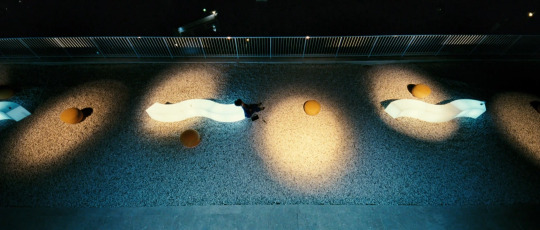


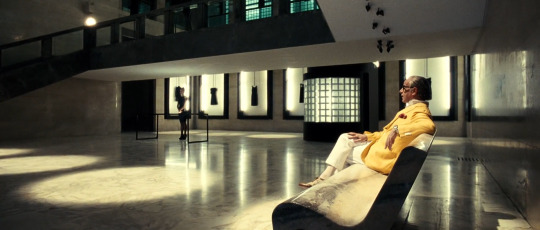

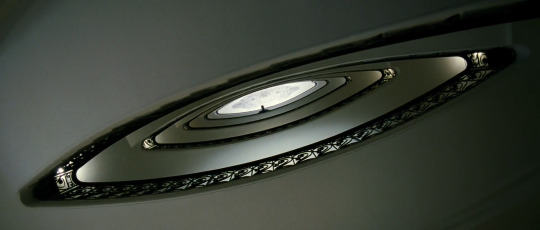
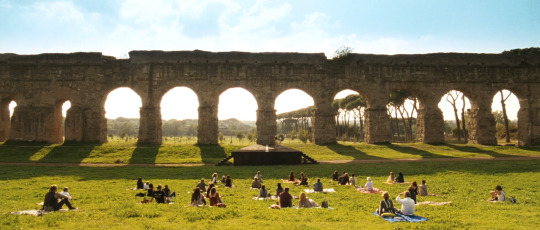
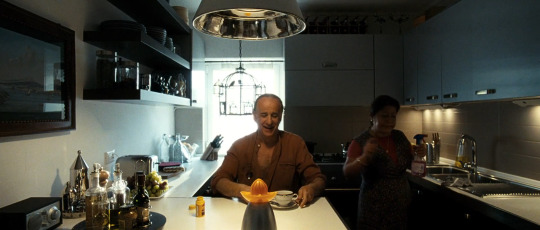
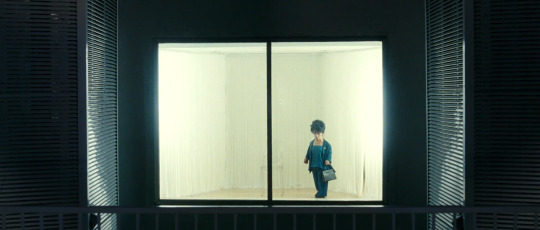
The Great Beauty, focused on the sixty-fifth birthday of a successful journalist and social animal in Rome, is a wonderful film: it presents a cosmopolitan portrait of life, and each image in the film seems well-chosen, for its architecture and interior design, for the presentation of nature and scene and visual art, for the location and placement of persons and movement. The central character among many eccentric characters, the journalist Jep Gambardella is smart and suave, a libertine who is too self-aware and honest to be self-infatuated or proud, and too generous to be cynical. Jep Gambardella (actor Toni Servillo) is a wonderfully believable and likable character. His life has been easy (his friends are rich, and he has a grand apartment, and the women are still attracted to him), but that has been part of his problem: Jep has not had to demand much of himself. The motion picture is full of personalities and their smart talk, and it presents diverse stories, different lives, with their comedy and drama. The Great Beauty could be a continuation of the work of great film directors such as Visconti, Fellini, and Bertolucci, men who created photoplays of grandeur and history, strangeness and truth. The importance of consciousness, personal choice, public discourse, art, money, and politics are the content of the conversations, conversations that are serious and also distractions from private dilemmas—a second book that was never written; a husband in love with someone else; a disturbed, suicidal son. The film allows meditation on modern existence, on the complexities and idiosyncrasies of modern contemporary life in great cities: the personal liberties and odd loneliness, and collisions of past and present, prominent industries, celebrity culture, jazz, cocaine, botox parties, and indulgent sexuality. by Daniel Garrett Volume 21, Issue 8 / August 2017
The film is an examination of potential unfulfilled and squandered, with the pursuit of momentary pleasures a salve against deeper wounds. It mixes a phantasmagoric, oblique critique of the excesses of Italy’s recent past under former Prime Minister Silvio Berlusconi with an affectionate unstated tribute to the peculiar, exuberant imagery of Italy’s cinematic maestro, Federico Fellini.
Sorrentino acknowledged that the outsized gestures of his visual style — as also demonstrated in his vividly dense 2008 film “Il Divo,” which starred Servillo as seven-time Italian Prime Minister Giulio Andreotti — are out of step with trends on the international art house circuit. And he doesn’t mind a bit. - By Mark Olsen
2 notes
·
View notes
Photo

La più consistente scoperta che ho fatto è che non posso più perdere tempo a fare cose che non mi va di fare.
Jep Gambardella, "La grande bellezza"
7 notes
·
View notes
Photo
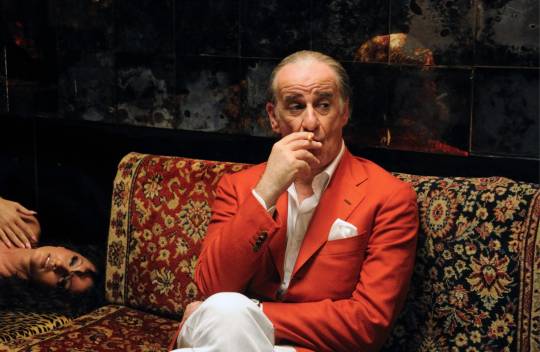
Toni Servillo in The Great Beauty (Paolo Sorrentino, 2013)
Cast: Toni Servillo, Carlo Verdone, Sabrina Ferilli, Carlo Buccirosso, Iaia Forte, Pamela Villoresi, Galatea Ranzi, Franco Graziosi, Giorgio Pasotti, Massimo Popolizio. Screenplay: Paolo Sorrentino, Umberto Contarello. Cinematography: Luca Bigazzi. Production design: Stefania Cella. Film editing: Cristiano Travaglioli. Music: Lele Marchitelli.
The great beauty referred to in the title of Paolo Sorrentino's film is Rome itself, which for millennia has transcended the ugliness that has overrun its seven hills. It's a city whose beauty and ugliness are seen in the film from the point of view of Jep Gambardella (Toni Servillo), who is celebrating his 65th birthday as the film begins. Jep is a bit like a straight Roman Truman Capote: He first received acclaim 40 years earlier for a well-received novella, but the rest of his life has been spent as a celebrity journalist, interviewing and gossiping about the rich and famous. This career has earned him his own fame and fortune -- he lives in a luxurious apartment whose balcony overlooks the Colosseum. The Rome in which Jep moves is filled with absurdity and excess: a performance artist who runs headlong into an ancient aqueduct; a little girl who has made millions by splashing canvases with paint and then smearing and tearing at them in a tantrum; a doctor who maintains a kind of assembly-line botox clinic in which patrons take numbers as if they were waiting in a delicatessen; a saintly centenarian Mother Teresa-style missionary whose spokesman is an oily dude with a shark-toothed grin; an archbishop considered next in line for the papacy who can only talk about food; and hordes of glitterati who spout inanities that they think will pass for wit. The Great Beauty is a satire, of course, but oddly it's a satire with heart: Jep Gambardella's long-since-broken heart. Servillo is terrific in the key role: elegant and cynical, but also capable of exposing idiots for what they are. Jep and the film in which he appears have obviously been compared to Marcello Mastroianni's character in La Dolce Vita (Federico Fellini, 1960), but Jep is less jaded than Marcello, less ground down by the decadence. And Sorrentino's view of his Rome is more genially ironic than Fellini's carnival of grotesques. Beautifully filmed by Luca Bigazzi, with a score by Lele Marchitelli augmented with works by contemporary composers like David Lang, Arvo Pärt, John Taverner, Henryk Górecki, and Vladimir Martynov, The Great Beauty was a deserving winner of the 2013 Oscar for foreign-language film.
4 notes
·
View notes
Text
io letteralmente il jep gambardella delle videochiamate: non solo vi partecipo, ma ho anche il potere di farle fallire
#avete presente le dicerie antiche sulle donne col ciclo che fanno marcire le cose? io così ma con le videochiamate. porto con me una#maledizione. *sì donne col ciclo non il massimo dell’ inclusività ma intendevo nel senso delle dicerie vecchie#gente col ciclo were all in this together facciamo marcire tutto <3
10 notes
·
View notes